U.S. Defense Secretary Mark Esper on Saturday cast China as a rising threat to world order — saying the world's most populous nation steals Western know-how, intimidates smaller neighbors and seeks an “advantage by any means and at any cost.”
A frequent critic of China, Esper used an address to an international security conference in Munich, Germany, to give his most comprehensive condemnation yet of a communist country that he said tops the Pentagon’s list of potential adversaries, followed by Russia, “rogue states” like North Korea and Iran, and continuing threats from extremist groups.
"The Chinese Communist Party is heading even faster and further in the wrong direction – more internal repression, more predatory economic practices, more heavy-handedness, and most concerning for me, a more aggressive military posture,” he said.
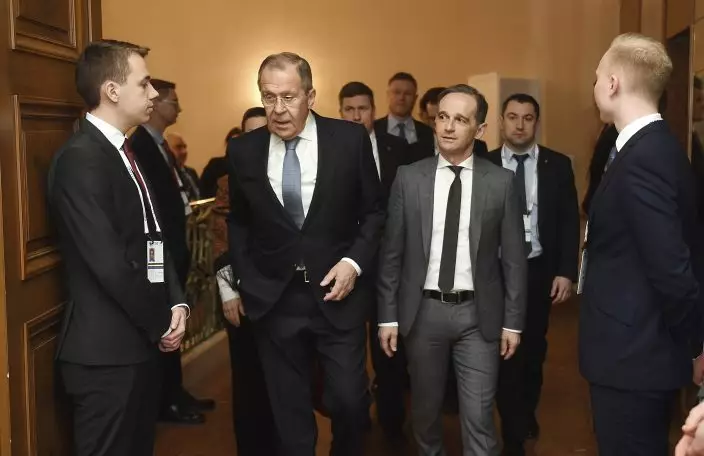
Sergei Lavrov, Foreign Minister of Russia, 2nd from left, and his German counterpart Heiko Maas meet for breakfast on the second day of the 56th Munich Security Conference in Munich, Germany, Saturday, Feb.15, 2020. (Tobias Hasedpa via AP)
Esper stressed that the United States does not want conflicts with China, and noted that the U.S. government has provided medical supplies to help China combat a coronavirus outbreak that has infected over 67,000 people. Still, he said Beijing has made clear its long-term intentions and said Europe and the rest of the world must “wake up” to the threats that China poses.
“The Communist Party and its associated organs, including the People’s Liberation Army, are increasingly operating in theaters outside its borders, including Europe, and seeking advantage by any means, and at any cost,” he said.
“While we often doubt the transparency and forthrightness of Beijing, when it comes to their security aims, we should take the Chinese government at its word,” he said. “They have said that by 2035, the PRC intends to complete its military modernization, and, by 2049, it seeks to dominate Asia as the preeminent global military power."
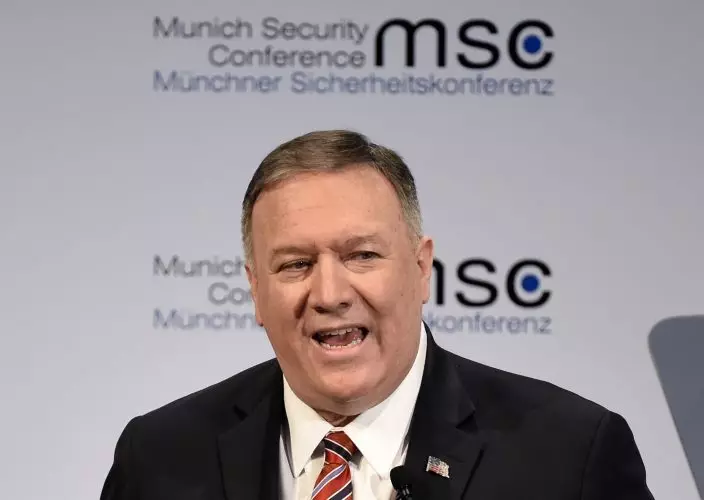
U.S. Secretary of State Mike Pompeo speaks on the second day of the Munich Security Conference in Munich, Germany, Saturday, Feb. 15, 2020. (AP PhotoJens Meyer)
With words that echoed the Trump administration’s criticisms of Iran, Esper said China represses its people and threatens its neighbors.
“We want China to behave like a normal country,” Esper said, adding “and that means the Chinese government needs to change its policies and behaviors.”
Esper and his immediate predecessor, Jim Mattis, have sought to shift the main focus of U.S. military and security policy toward China and away from small wars against insurgents and extremists. U.S. allies in Europe, while concerned about China's rise, are more immediately worried about Russia.
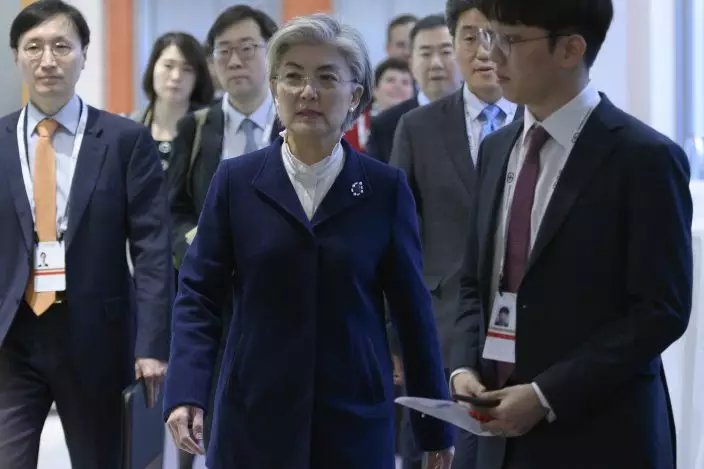
South Korea's Foreign Minister Kang Kyung-wha, center, arrives at a trilateral meeting with U.S. Secretary of State Mike Pompeo and Japan's Foreign Minister Toshimitsu Motegi during the 56th Munich Security Conference (MSC) in Munich, southern Germany Saturday, Feb. 15, 2020. (Andrew Caballero-ReynoldsPool Photo via AP)
In remarks to the conference earlier Saturday, NATO Secretary-General Jens Stoltenberg said China presents challenges as well as opportunities for Western nations. He said Europe and the United States need to work out a united approach to China's rise.
“There are opportunities, but also many challenges,” Stoltenberg said, adding that it's important for Western countries to keep open lines of communication with Beijing.
Addressing the same audience, U.S. Secretary of State Mike Pompeo refuted assertions that the United States under President Donald Trump was rejecting its traditional international leadership role.
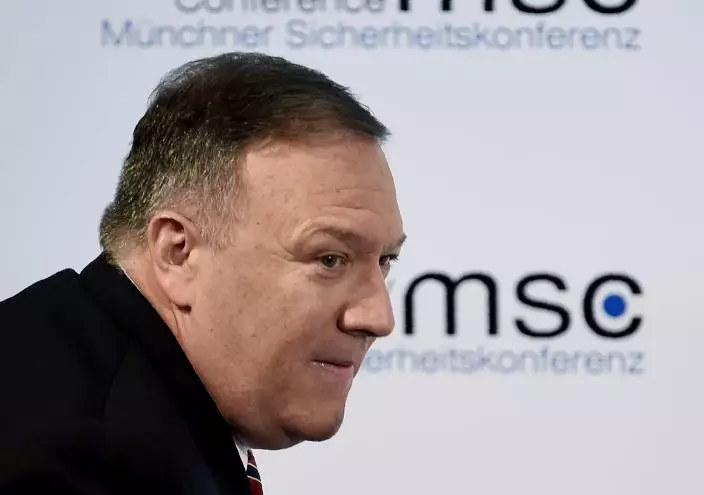
U.S. Secretary of State Mike Pompeo goes to the stage on the second day of the Munich Security Conference in Munich, Germany, Saturday, Feb. 15, 2020. (AP PhotoJens Meyer)
“I’m happy to report that the death of the transatlantic alliance is grossly over-exaggerated,” Pompeo said. “The West is winning.”
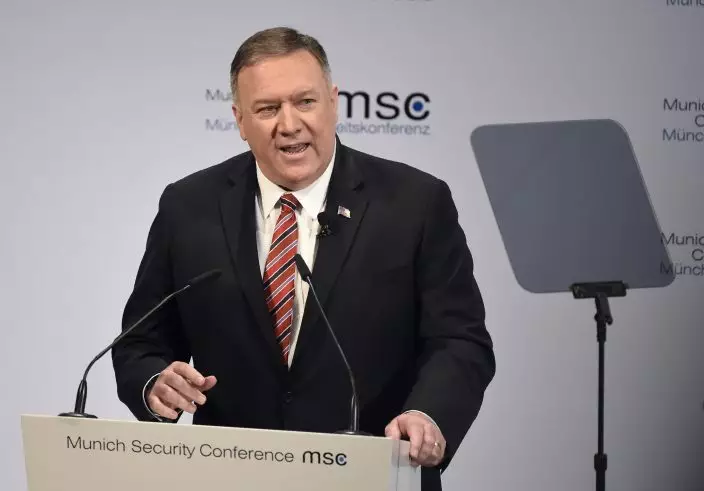
U.S. Secretary of State Mike Pompeo speaks on the second day of the Munich Security Conference in Munich, Germany, Saturday, Feb. 15, 2020. (AP PhotoJens Meyer)
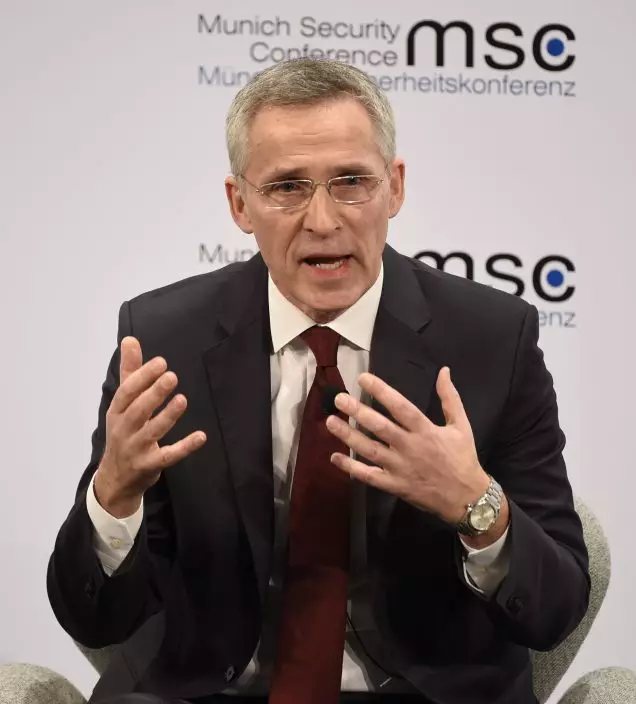
NATO Secretary General Jens Stoltenberg speaks on the second day of the Munich Security Conference in Munich, Germany, Saturday, Feb. 15, 2020. (AP PhotoJens Meyer)
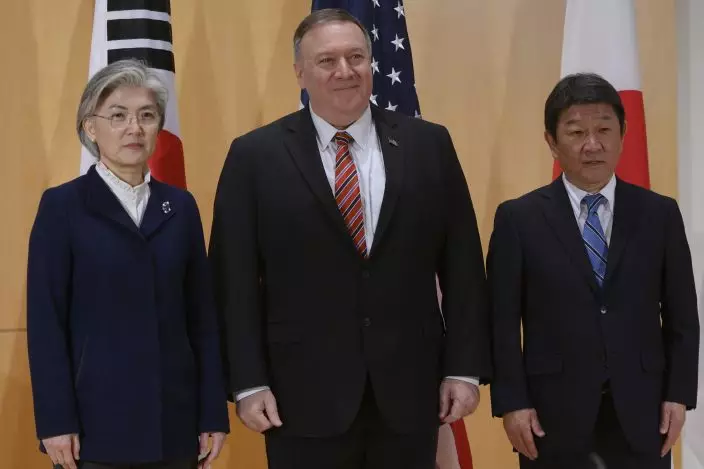
From left, South Korea's Foreign Minister Kang Kyung-wha, U.S. Secretary of State Mike Pompeo and Japan's Foreign Minister Toshimitsu Motegi pose during a trilateral meeting during the 56th Munich Security Conference (MSC) in Munich, southern Germany Saturday, Feb. 15, 2020. (Andrew Caballero-ReynoldsPool Photo via AP)
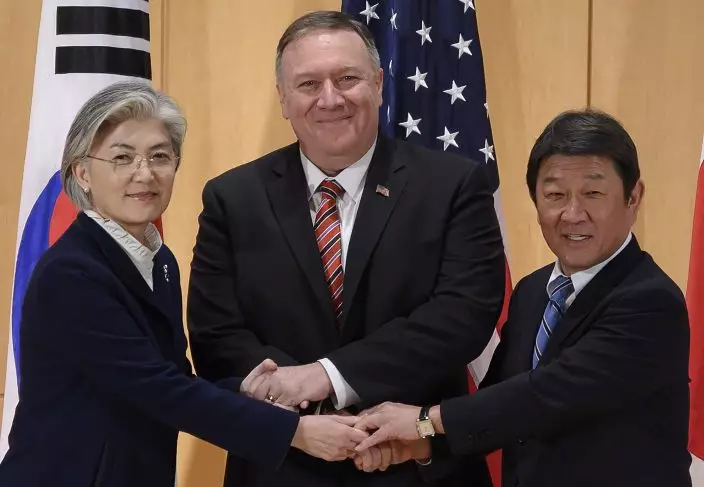
U.S. Secretary of State Mike Pompeo, center, shakes hands with Japan's Foreign Minister Toshimitsu Motegi, right, and South Korea's Foreign Minister Kang Kyung-wha during a trilateral meeting during the 56th Munich Security Conference (MSC) in Munich, southern Germany, Saturday, Feb. 15, 2020. (Andrew Caballero-ReynoldsPool Photo via AP)
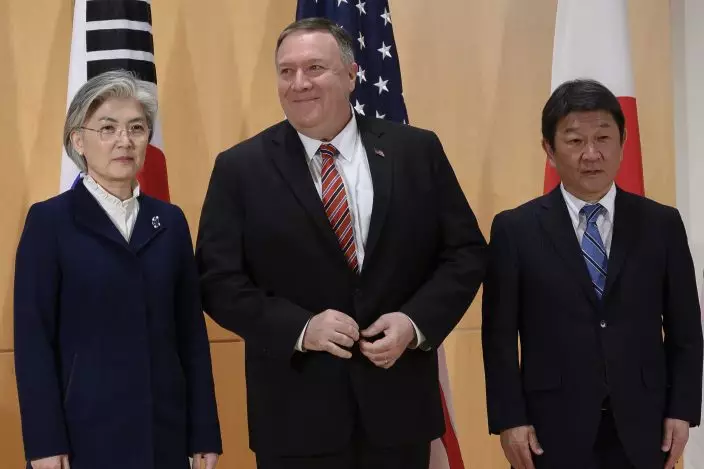
From left, South Korea's Foreign Minister Kang Kyung-wha, U.S. Secretary of State Mike Pompeo and Japan's Foreign Minister Toshimitsu Motegi pose during a trilateral meeting during the 56th Munich Security Conference (MSC) in Munich, southern Germany Saturday, Feb. 15, 2020. (Andrew Caballero-ReynoldsPool Photo via AP)
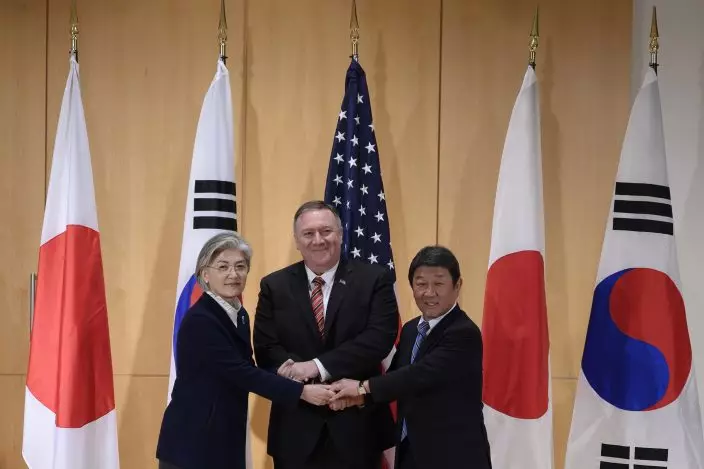
U.S. Secretary of State Mike Pompeo, center, shakes hands with Japan's Foreign Minister Toshimitsu Motegi, right, and South Korea's Foreign Minister Kang Kyung-wha during a trilateral meeting during the 56th Munich Security Conference (MSC) in Munich, southern Germany, Saturday, Feb. 15, 2020. (Andrew Caballero-ReynoldsPool Photo via AP)
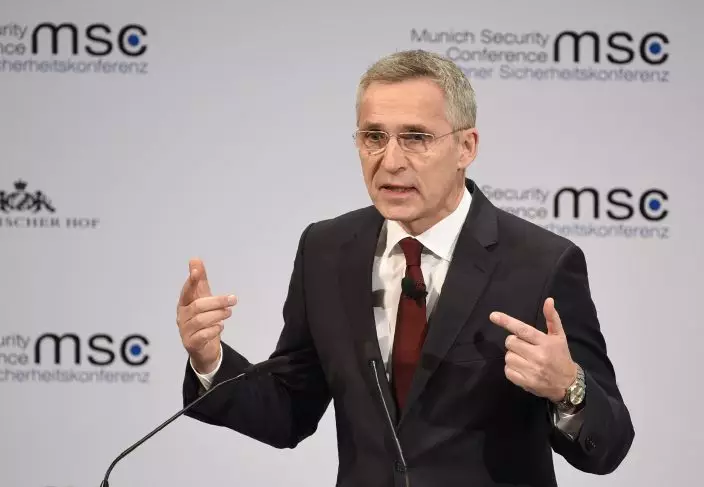
NATO Secretary General Jens Stoltenberg speaks on the second day of the Munich Security Conference in Munich, Germany, Saturday, Feb. 15, 2020. (AP PhotoJens Meyer)


